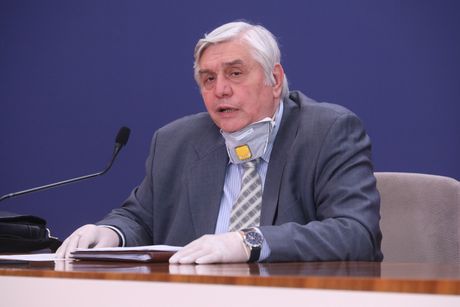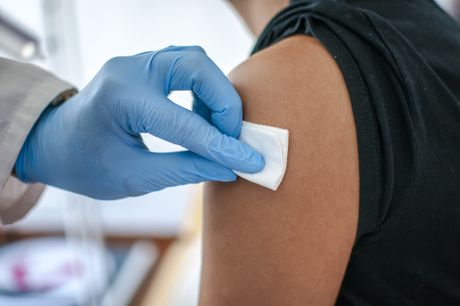World fears new strain of coronavirus: What's the chance it will reach Serbia, do the measures help?

Just a year after the appearance of the new coronavirus, the world is worried about its new strain that appeared in Great Britain, once again in December. Is it more contagious, more deadly, does it affect young people more, does the newly made coronavirus vaccine protect against it?
These are just some of the questions that medical professionals are trying to answer, and until experts separate its genome and read it in detail, it is certain that we must adhere to the measures we already live with.
Infections with a new strain of coronavirus have not been registered in Serbia so far, and as Professor Dr. Branislav Tiodorovic, epidemiologist and member of the Crisis HQ for the fight against the coronavirus says, there is always a chance that something like this will happen. Let's not forget that coronavirus reached us via Bergamo.
He says that the existing measures - mask wearing, distancing and regular hand washing - also help with the new strain. He also explains that the changes in the new strain in relation to the existing virus are not very serious - as they could be - but that we should monitor what is happening.
"The situation in Great Britain also supports this. They did not change the measures, those remained, but they introduced a more serious attitude towards the measures in London and England, where the virus appeared. That means they have supervision. They have already announced that there are no differences compared to the previous virus. Three days ago, it was said that maybe young people get sick more seriously, that they have a more severe clinical picture, that it is transmitted faster, but the question is how can someone now say that transmission is 70% faster?," asks Professor Dr. Tiodorovic.
This is not about a serious mutation, a new type
He recalls that the World Health Organization also said that the British had informed them about everything and that they are constantly in touch, but also that no one in the world has confirmed that a new strain has some characteristics that are especially worrying:
"As far as I know, the new strain has been confirmed in Australia, which is a bit strange. They are far away. I assume it is an imported case. The hardest part is determining where the first case came from. But I see that the Danes, the Dutch, the Belgians have already suspended flights to Great Britain. Even the Germans and the French."

Professor Dr. Tiodorovic says that a characteristic of all viruses is to mutate. This is also the case with this one, which has already gone through several minor mutations.
"Practically, when they pass through the human population, mutations occur. That mutation can be more serious, let's say more meaningful, with the creation of a new type. This, however, is not what's happening. These are just some characteristics. That may be a small change, but enough to worry scientists who monitor it. It's like the flu. All this is no surprise. In this complete period of 10 months, small mutational changes have been observed. Scientists who deal with this in specialized laboratories dissect such a genome and study it completely," explains Professor Dr. Tiodorovic.
He adds that it is important to follow what is happening.
"As long as the virus remains in the human population, it can acquire some new properties, i.e., it can mutate. What is important at the moment is that the English have confirmed, and no one in Europe has denied, which does not mean that someone in future research will not, is that the Pfizer vaccine, which is also administered in the UK and will start in other European countries, also protects from this strain," says our interlocutor.
Measures even after vaccination
He repeats that even when mass vaccination starts in our country, we will have to respect the existing measures.
"The first is that not everyone will be able to be vaccinated at once, the second is that there will always be those who are not allowed to receive the vaccine for some reason, such as allergies, they cannot get this Pfizer's. Also, children under the age of 18 cannot receive this vaccine. So, there is a mass of people who will not be covered by the vaccine, so all measures must be taken as if there was no vaccine.

"Those who receive the vaccine will not be protected immediately. They must receive two doses 21 days apart. They usually say that after the first dose, there is about 60 percent protection, and only when the second dose is received, the protection is more than 90 percent. But even after that second dose, 7 to 10 days must pass, it all depends on the body. Some will develop antibodies sooner, some later," says Professor Dr. Tiodorovic.
A new strain of coronavirus in our country
Asked what about the chances of those infected with the new strain appearing in Serbia, he said:
"There is always a chance for it to appear in our country as well. We will probably consider that in the coming days. First we have to see if we have flights with Great Britain, which airlines these are. The situation must be assessed well. If it is a flight that is not a problem, if it flies to those areas where it (the new strain) is not present, then there is no need for suspension. And can anyone come? Well yes. Just as coronavirus came to us through Bergamo, so it can come to us through the European Union," says Professor Dr. Tiodorovic.
Finally, he adds that since Serbia is on the verge of starting vaccination against coronavirus, the role of the media is very important, in the sense of publishing timely and accurate information.
"If there are any post-vaccine reactions, which can be worrying, that should be said. As they immediately said about the Pfizer vaccine that there are reactions in those who are allergic, the truth should be told about everything else. It's very important to say openly who can receive it, who can't because and why, and to support that with explanations.
Video: Crisis HQs latest decision: The new measures take effect immediately
(Telegraf.rs)
Video: Sneg prekrio Staru Planinu: Nestvaran prizor
Telegraf.rs zadržava sva prava nad sadržajem. Za preuzimanje sadržaja pogledajte uputstva na stranici Uslovi korišćenja.

